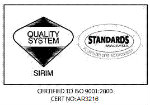Food Insecurity and the Human Wellbeing
Food insecurity is the state of insufficient resources of good quality food available for everyone. The typical understanding about food insecurity refers to food scarcity and deprivation due to certain factors such as poverty, climate problems and environmental calamities, or pandemics. But in reality, food insecurity represents a bigger phenomenon than what is thought of. It is not solely due to the limited amount of food available on the table that everyone will finally fall into a major state of starvation.
Crisis about food insecurity has made its way during the recent COVID-19 pandemic. Food insecurity has been impacted to the core as it has left many people around the world without enough food due to the restricted movement order. The United Nations World Food Program Report in 2020 revealed that 265 million people around the globe faced acute food insecurity as they were restricted to the food accessibility during the pandemic. In addition, the pandemic has not only worsened the crisis of food insecurity, but also indirectly affected physical and mental health, as well as general wellbeing of people.
In conceptualising food insecurity, the United States of America’s Department of Agriculture (USDA) divides food insecurity into two categories—it represents low or very low levels of food security and safety. Low level food security represents a situation where reduced food quality is observed in the society in the event of food availability, along with limited food variety, or only limited certain desirable food and diet is available for a specific period of time.
Such a level, however, indicates minimal or no indication of reduced food intake, since plenty of food is available. Food intake is further understood as a number or intake of the specific food that an individual consumes daily in comparison to other types of food in general. It describes the specific amount of a particular food that is consumed and this depends on the geographical, financial, personal, and social or health status of an individual. Such type of food insecurity is, however, not a determinant factor of limited food availability since food is easily available. The second type of food insecurity is considered as a very low level of food security and this happens as a result of limited and reduced food intake, most probably as a result of food scarcity and limited availability, and consequently with some disruption of eating patterns.
The current situation shows that even with plenty of food available on the table, someone still may expose himself to the risk of food insecurity. This could happen even if he is biologically satisfied, without hunger or thirst. How could this happen? Issues of food insecurity have been actually thought of as problems of the past, where many countries and people were challenged by inadequacies in many aspects of their life geographically, financially and socially. However, other than the famine season alone, or a major climate change phenomenon, reasons for food insecurity are actually multiple, rather than only due to issues of the environment.
Economic condition is among the most virulent and disturbing factors that potentially risk people and society into food insecurity. A USDA report in 2016 pointed out that the rate of poverty and unemployment were positively correlated with food insecurity. As a result, affordable and good quality food was unreachable to the large part of the world and society that led to malnutrition and other health related conditions and illnesses.
Food-related nutritional inadequacies is another indication of food insecurity as people do not have reliable mechanisms for getting good and nutritiously well-balanced food. It is a major cause of malnutrition especially in low income countries or people living in restricted or rural areas. Bear in mind that some characteristics of healthy and well-balanced nutrition is a rich and diverse dietary patterns of food and choices, ranging from a wide spectrum of fruits and vegetables to the healthy proteins and carbohydrates. Understandably, lack of nutrition and micronutrient deficiencies are major causes of illness and diseases that increase morbidity, mortality rates and unnecessary health related burdens to the health care systems and countries.
Furthermore, food insecurity also indicates a disruption in the patterns of the behaviour of individuals in the society. It is described as a disruptive patterns of food intake, or food choices that the individuals in the society is succumbed to when it comes to food and eating behaviour and patterns. In this situation, someone with issues of food insecurity may pose risks of being under or over nourishment that lead to health complications such as anxiety and depression, eating and feeding disorders such as anorexia nervosa, gastro-intestinal disorders such as gastritis and supra-gastric belching, metabolic diseases such as diabetes and obesity and so on.
In addition, Islamic concerns about food security and safety are derived from the teachings of the Quran and the Sunnah of the Prophet Muhammad SAW. The teachings encompass the types and quality of food choices, as well as the desirable eating related behaviour, which promote good quality food choices, and at the same time, preventative in nature. In this regard, there are several situations that the Quran ordains people to consume only pure and lawful food as described in surah al Baqarah, verses 168 and 172, and in surah al An’am, verses 118 and 121.
Furthermore, the Prophet Muhammad SAW, from Sa’ad, who relayed that the Prophet once said: “O Sa’ad, purify your food (and as a result) you will become the one whose supplications are accepted. I swear by He in whose hands the soul of Muhammad lies, verily a servant (of Allah) tosses a Harām morsel in his stomach (due to which) no deed is accepted from him for 40 days” (Tabarani). In another narration, from Abu Bakar who narrated that the Prophet Muhammad said: “That body will not enter Paradise which has been nourished with Haram” (Bayhaqi).
In conclusion, Islam itself has been so advanced in paving the way to food safety for the world’s population. Therefore, it is the responsibility of all Muslims to act actively in ensuring that every food they eat is clean and safe as well as halal. Ensuring availability of halal and safe food is a charity they can do for their family, society and for their religion as a whole and will be rewarded accordingly by Allah in the Hereafter.




